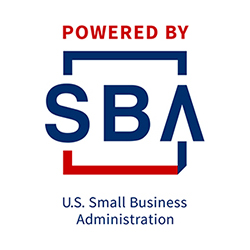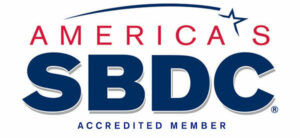How Does PPP Loan Forgiveness Work for Self-Employed?
How Does PPP Loan Forgiveness Work for Self-Employed?
Loan forgiveness for PPP loans for companies is generally, easily understood in concept. But how does loan forgiveness work for the self-employed?
We suggest you talk directly with the bank that approved your PPP loan for how to apply for and document for your loan forgiveness. But briefly, the internet and its accounting experts have offered answers:
Forgiveness for self-employed individuals
You are entitled to use the PPP loan to replace lost compensation due to the impacts of COVID-19. However, you are not entitled to use the full amount to replace pay. Eight weeks worth of your 2019 net profit will be eligible for forgiveness.
https://bench.co/blog/operations/ppp-loan-forgiveness/
and
Payroll and Forgiveness For the Self Employed
The SBA provided additional guidance on April 14, 2020 regarding PPP for self-employed individuals. What follows is a brief summary. If you are self-employed and File IRS Form 1040 Schedule C, we recommend you read the full guidance.
First, self-employed individuals without any employees who file IRS Form 1040 Schedule C calculate payroll differently. Use the net profit for the business from 2019 as reported on line 31 of Schedule C. Using up to $100,000 of net profit, divide that amount by 12 to get the average monthly net profit, then multiply by 2.5 to get the maximum loan amount. (Note you do not have to file your 2019 tax return before you apply, but the SBA says you must complete it.)
For forgiveness, that same document provides the following guidance:
“The amount of loan forgiveness can be up to the full principal amount of the loan plus accrued interest. The actual amount of loan forgiveness will depend, in part, on the total amount spent over the covered period on:
• Payroll costs including salary, wages, and tips, up to $100,000 of annualized pay per employee (for eight weeks, a maximum of $15,385 per individual), as well as covered benefits for employees (but not owners), including health care expenses, retirement contributions, and state taxes imposed on employee payroll paid by the employer (such as unemployment insurance premiums);
• Owner compensation replacement, calculated based on 2019 net profit … with forgiveness of such amounts limited to eight weeks’ worth (8/52) of 2019 net profit, but excluding any qualified sick leave equivalent amount for which a credit is claimed under section 7002 of the Families First Coronavirus Response Act (FFCRA) or qualified family leave equivalent amount for which a credit is claimed under section 7004 of FFCRA;
• Payments of interest on mortgage obligations on real or personal property incurred before February 15, 2020, to the extent they are deductible on Form 1040 Schedule C (business mortgage payments);
• Rent payments on lease agreements in force before February 15, 2020, to the extent they are deductible on Form 1040 Schedule C (business rent payments); and
• Utility payments under service agreements dated before February 15, 2020 to the extent they are deductible on Form 1040 Schedule C (business utility payments).
That’s a lot of text, but details matter here. Note in particular that the SBA says the owner’s compensation portion of the loan here is limited when it comes to forgiveness:
“It is appropriate to limit the forgiveness of owner compensation replacement for individuals with self-employment income who file a Schedule C to eight weeks’ worth (8 divided by 52) of 2019 net profit…This is because many self-employed individuals have few of the overhead expenses that qualify for forgiveness under the Act. For example, many such individuals operate out of either their homes, vehicles, or sheds and thus do not incur qualifying mortgage interest, rent, or utility payments. As a result, most of their receipts will constitute net income.”
If that leaves you confused as to whether a self-employed individual can or cannot include qualified mortgage interest, rent or utility expenses in their forgiveness calculation you’re not alone. Tony Nitti, CPA, has written in a detailed Forbes article that “I would argue that the additional costs – mortgage interest, rent, utilities – are still eligible for forgiveness” but goes on to state it’s not completely clear.
As always, seek guidance for a Certified Public Accountant.




Leave a Reply
Want to join the discussion?Feel free to contribute!